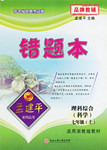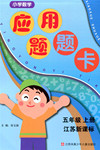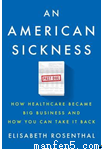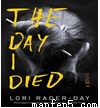题目内容
“Did you hear what happened to Adam Last Friday?” Lindsey whispers to Tori.
With her eyes shining, Tori brags, “You bet I did, Sean told me two days ago.”
Who are Lindsey and Tori talking about? It just happened to be yours truly, Adam Freedman. I can tell you that what they are saying is (a) not nice and (b) not even true. Still, Lindsey and Tori aren’t very different from most students here at Linton High School, including me. Many of our conversations are gossip(闲话). I have noticed three effects of gossip: it can hurt people, it can give gossipers a strange kind of satisfaction, and it can cause social pressures in a group.
An important negative effect of gossip is that it can hurt the person being talked about. Usually, gossip spreads information about a topic-breakups, trouble at home, even dropping out-that a person would rather keep secret. The more embarrassing or shameful the secret is, the juicier the gossip it makes. Probably the worst type of gossip is the absolute lie. People often think of gossipers as harmless, but cruel lies can cause pain.
If we know that gossip can be harmful, then why do so many of us do it? Theanswer lies in another effect of gossip: the satisfaction it gives us. Sharing the latest rumor(传言) can make a person feel important because he or she knows something that others don’t. Similarly, hearing the latest rumor can make a person feel like part of the “in group.” In other words, gossip is satisfying because it gives people a sense of belonging or even superiority(优越感).
Gossip also can have a third effect: it strengthens unwritten, unspoken rules about how people should act. Professor David Wilson explains that gossip is important in policing behaviors in a group. Translated into high school terms, this means that if everybody you hang around with is laughing at what John wore or what Jane said, then you can bet that wearing or saying something similar will get you the same kind of negative attention. The dos and don’ts conveyed through gossip will never show up in any student handbook.
The effects of gossip vary depending on the situation. The next time you feel the urge to spread the latest news, think about why you want to gossip and what effects your “juicy story” might have.
1.The author uses a conversation at the beginning of the passage to .
A. introduce a topic B. present an argument
C. describe the characters D. clarify his writing purpose
2.Professor David Wilson thinks that gossip can .
A. provide students with written rules
B. help people watch their own behaviors
C. force schools to improve student handbooks
D. attract the police’s attention to group behaviors
3.What advice does the author give in the passage?
A. Never become a gossiper
B. Stay away from gossipers
C. Don’t let gossip turn into lies
D. Think twice before you gossip.
 孟建平错题本系列答案
孟建平错题本系列答案 超能学典应用题题卡系列答案
超能学典应用题题卡系列答案THE WEEK IN READING: THE BEST NEW BOOK RELEASES FOR APRIL, 2017
Void Star by Zachary Mason
Farrar, Straus and Giroux, 400 pages Zachary Mason creates a world in which the line between human and computer is completely erased, yet he still manages to make the reader feel for all the characters—both man and machine—equally. Add that to a highly addictive plot and an exploration of memory’s impact on our identity, and you’ve got one of the most richly complex novels of the year. |
An American Sickness: How Healthcare Became Big Business and How You Can Take It Back by Elisabeth Rosenthal
Penguin Press, 416 pages It’s not uncommon to come across a complete takedown of the American healthcare system as it stands today. But what is uncommon is what Elisabeth Rosenthal has done in this must-read exploration of what we are (and aren’t) doing right: She has the answers we’ve all been searching for in a potential post-Obamacare world. An American Sickness is the frontline defense against a healthcare system that no longer has our well-being at heart. |
A History of Violence: Living and Dying in Central America by ?scar Martínez Verso, 288 pages
El Salvador and Honduras have had the highest homicide rates in the world over the past ten years, with Guatemala close behind. Every day more than 1,000 people—men, women, and children—flee these three countries for North America. Step outside yourself for a couple hours and immerse yourself in one of the most incredibly vivid, well-reported journeys through Central America that you will ever experience. |
Sunshine State by Sarah Gerard Harper Perennial, 384 pages
Sarah Gerard deftly takes the reader through the most essential issues of our time—homelessness, addiction, incarceration—via a coming-of-age lens in the state of Florida, where, as we all know, anything goes. |
The Day I Died by Lori Rader-Day William Morrow Paperbacks, 432 pages
An incredibly complex and smart novel, The Day I Died contains all the features of a small-town murder mystery but takes it one step further with a narrative about a woman’s unbreakable search for the answers to not just a crime but about her own identity. |
1.If you want to know about social problems in the US, you will probably choose _______.
A. Void Star B. A History of Violence
C. The Day I Died D. Sunshine State
2.Which statement is NOT true according to these books?
A. Void Star is a science fiction with a highly addictive plot.
B. The American healthcare system is favored by all Americans.
C. A History of Violence perhaps involves violence problems.
D. The Day I Died is a novel not only about a murder mystery.






